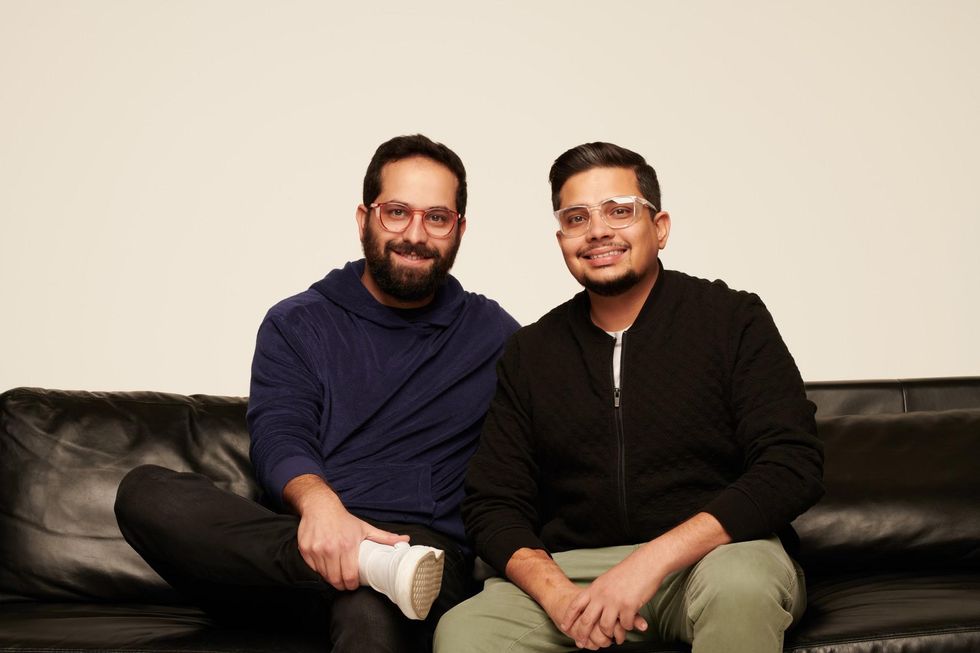Stoggles, a Stylish Spin on Safety Goggles, Seals $40 Million

- The Pasadena eyewear startup has found a market with health care workers and is looking to grow with new investment from L.A.-based The Chernin Group.
Safety goggles are usually anything but stylish. But just as direct-to-consumer brands FIGS and Clove brought sophistication and flair to medical scrubs and health care shoes, respectively, so is Stoggles looking to spice up its own dull niche.
“We are the FIGS for faces,” according to Rahul Khatri, co-founder of the Pasadena-based safety eyewear brand. Stoggles—a playful combination of words “style” and “goggles”—has found traction with buyers who work in medical fields and are tired of donning bulky protective goggles while in surgery or tending to patients. The company offers a sleek, trendy look in bright colors like lilac, coral red, and mint green, as well as prescription lenses and bifocals.
On Wednesday, Stoggles disclosed a growth equity raise of $40 million led by Los Angeles-based investment firm The Chernin Group, which focuses on consumer brands in media and tech. (Among Chernin’s investments include West Hollywood-based neo-bank Dave and Pasadena-based youth sports streaming service BallerTV.)
Stoggles, which is eyeing a new headquarters location in Culver City or West Hollywood, generated more than $13.5 million in revenue last year, according to the company. The new funding will help the 15-person company triple its current headcount by the end of the year, Khatri said.

The startup isn’t the first rodeo for Khatri and his co-founder Max Greenberg, who met as students at Pasadena’s ArtCenter College of Design in 2015. By the following year, they had started Roav, an athletic eyewear brand specializing in foldable, high-performance sunglasses. While the startup raised $225,000 through crowdfunding platform Kickstarter, the concept never really caught on as hoped in a fiercely competitive market for sunglasses. (Roav continues to operate with less than $1 million in annual sales, according to Khatri.)
The pandemic proved to be the catalyst for a new venture separate from Roav for the duo. In mid-2020, after Greenberg showed Khatri an illustration he found on Instagram of a pair of retro-looking goggles, the industrial designers agreed that they could produce something better. Their creative doodling came as public health officials were urging people to wear face shields to protect themselves from the spread of COVID-19.
The confluence of events—the illustration and the pandemic—led the two designers to the concept of protective eyewear with a chic flair. Stoggles launched last year after raising around $3.5 million through a crowdfunding campaign.
Now, doctors and surgeons are buying the brand’s glasses to protect their eyes from germs and fluids, firefighters use them to shield their eyes from smoke and chefs use them to keep from tearing up while slicing onions. Stoggles glasses start at $39 each, though the price can rise to nearly $200 as prescription lenses with anti-fog coating and bifocals are added.
Stoggles may be ramping up its business at an opportune time. According to research from optical industry trade group The Vision Council, sales of frames and lenses in the U.S. began rebounding in 2021, after diving during the first year of the pandemic in 2020.
Nearly 65 million pairs of frames and more than 72 million pairs of lenses were sold in 2020—down from nearly 79 million pairs frames and nearly 88 million pairs of lenses in 2019, according to the research. However, frame and lens sales showed significant growth through the first nine months of 2021, climbing 27% over the same period in 2020 and “actually increas[ing] above pre-pandemic levels,” according to Vision Council spokesperson Hayley Rakus.



 Image Source: Revel
Image Source: Revel
